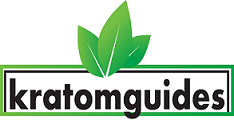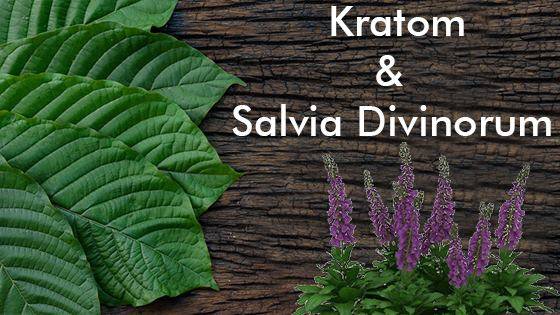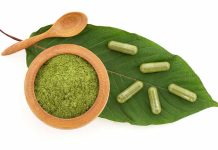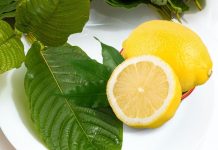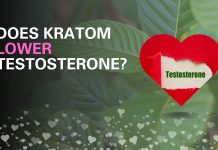Thanks to the magical powers of the interweb, we have access to many forms of plant medicine. Before, we would have had to travel to Southeast Asia to experience the pros of these natural medicines.
Natural psychedelic drugs like salvia, mushrooms, ayahuasca, and kratom have a few things in common. When we consume psychedelics, we typically experience, see and hear things that aren’t actually happening in real life.
While kratom may be much more mellow than salvia, the most significant connection is that they work on the same receptors throughout the body.
Different hallucinogens will create different trips. There is hardly any consistency of use other than the effects that take place. The length, intensity, and mindset of each high will vary between users.
Natural Psychedelic Drugs
Herbal medicines promote balance and wellbeing. Sourcing a high-quality herb is essential to experience effectiveness and accuracy when using these plants.
While most plant medicines are psychoactive, there are also nonpsychoactive herbs that promote health (like kratom).
Salvia Divinorum
Salvia is a naturally-occurring psychedelic that when consumed, provide a trip that may be short, but it is also very intense.
The high of salvia last no longer than fifteen minutes on average.
However, if you have never experimented with psychedelics, or you are in a dangerous place mentally, the trip may be extremely overpowering and may cause harmful effects.
This plant is found locally in the forest areas of Oaxaca, Mexico.
Initially used for medical and religious purposes by the Mazatec Indians, the psychoactive ingredient found in salvia (salvinorin A.) has no known therapeutic properties to date.
The active ingredient in salvia (salvinorin A) is a kappa opioid receptor (KOR), agonist. This means it binds to and activates receptors in our central nervous system found mainly in the brain.
Why Would I Use Salvia?
Many young adults and teens have used salvia at least once. You can purchase it at head shops and online.
People choose to use salvia because they want to: experience spiritual effects, are curious, want to get high, or simply just to relax and unwind.
Currently, investigation and research are underway to understand the effectiveness of salvia as a holistic medical therapy.
Common Names For Salvia
Most places in North America consider salvia a recreational drug that is considered legal. As we have discussed before, just because it is legal doesn’t mean it is safe. Street names for salvia include magic mint, lady sally, the sage of the seers, maria
Effects Of Salvia
Hallucinogens mean you can expect to see, feel, and hear things that are not apart of reality. A typical salvia experience can induce a dream-like sensation.
The main effects reported by those who use salvia are uncontrollable laughter, visual (bright colours & unusual shapes), improved mood, recollection of memories, sensations of being twisted, pulled, or any type of motion, talkativeness, out-of-body experiences, contact with other dimensions, and loss of contact with reality.
Risks Of Using Salvia
As of today, there have been no reports of a hangover once salvia wears off. Disruption of space and time can be intimidating and scary for a user that is not prepared for a psychedelic trip.
Those who are of not sound mind ( have a strong sense of who they are as a person) may experience a serious psychotic breakdown.
Now that we’ve discussed the most severe risks, the most common side effects of using Slavia are tiredness, dizziness, loss of memory, lack of coordination, slurred speech, lack of concentration, difficulty with coordination, and spatiotemporal dislocation ( a feeling of transporting to an unrealistic place or time).
Kratom
This large tree found in regions of South-East Asia may be illegal in Thailand, but it is still legal here in North America (for the most part).
The reason kratom has become so popular is that it has morphine-like effects. While it is considered a psychedelic, there are not many cases involving full on hallucinations.
This plant is a very popular herb because it alleviates pain, reduces stress & anxiety, produces a mild euphoria, increases stamina, and improves mental focus. People who suffer from chronic neuropathic pain like arthritis have effectively treated their symptoms with the use of kratom.
Alkaloids bind to opioid receptors, and that is what causes the effects of kratom. In my opinion, this is the only connection between salvia divinorum and kratom.
Why Should I Use Kratom?
There needs to be more research conducted into the effectiveness of using kratom for medical purposes. However, user-based evidence suggests kratom is a natural supplement that can help you ease both physical and mental pains.
Physical pain like arthritis, fibromyalgia, and chronic back pain can be treated with using kratom.
Other people suffering from ailments like depression, anxiety, opiate withdrawal, and hypertension (high blood pressure) state the positive benefits and effectiveness of kratom outweigh any potential harmful side-effects.
Common Names For Kratom
There are various strains of kratom (mitragyna speciosa), but they are all a member of the Rubiaceae family (like coffee and gardenia). They all also enhance the mind, body, and soul. While the most common use for kratom in North America is to ease the symptoms of opioid withdrawal, others use it for purely recreational purposes or as a health supplement.
The common street names from kratom are kahuam, ithang, herbal speedball, Biak-Biak, ketum, and thom.
The Effects Of Kratom
Kratom may be an ancient remedy in South-East Asia, but it is pretty new in North America and Europe.
The most common reasons a person uses kratom is because it works as a pain killer, reduces anxiety & stress, as well as decreases the distressing symptoms of addiction withdrawal.
You can buy it in leaf or powder form, and depending on the method of consumption the onset of the effects are quite quick.
Other benefits of kratom include greater sex drive, enhances motivation levels, ability to focus, quality sleep. Reduces inflammation, prevents diarrhea, and also helps with weight loss.
Risks Of Using Kratom
Unlike salvia (which has been around since the 1990s), kratom has only recently made an appearance in Canada and the US (about 2012). Today, thousands of users swear by its use because it treats their ailments effectively and naturally.
Just like any product (natural or man-made), there can be risks involved. You may experience both short and long-term effects, or you may not experience any downsides of using kratom.
People who use kratom to treat addiction symptoms say any side-effect kratom may have nothing compared to being addicted to harder substances like heroin and prescription drugs.
There are two types of undesirable effects associated with kratom: using the supplement & forming an addiction to it.
The most common side-effects felt by kratom users are sweating, nausea, lethargy, aggressive behaviour, constipation, and in severe cases hallucinations.
Side-effects related to addiction and withdrawal include weight loss, intense cravings, loss of libido, severe depression, tremors, and restlessness.
Kratom And Salvia Mixed
People who promote the use of plant medicine have brought up an interesting question: is there synergistic effects when combining salvia
Users say there can be a synergy between the two plants because there is a potential for multiplier effects.
Unless you are experienced, I would recommend avoiding these two supplements for the simple fact there is little to no evidence on long-term negative side-effects in doing so.
All Things Considered
To sum it up for you, the only connection between salvia divinorum and kratom is how they bind and act on receptors in our body. Aside from that, there is no connection.
People use salvia recreationally to experience a short (but intense) psychotropic high that can cause a person to hallucinate (you know, trip balls).
Kratom is recognized more as a health supplement that possesses medical properties. Treating physical pain, stress, and addiction naturally are the main reasons a person will opt for kratom.
Both have side effects that are great and not-so-great. (okay, so I guess there are two connections). That can be said for any natural or synthetic product we choose to consume.
The biggest downside of using salvia is legit psychosis, and the most significant negative about using kratom is constipation.
Because we have no concrete evidence that supports the use of
Both substances are not regulated in North America. Kratom is labeled as a health supplement whereas salvia is sold as a recreational high in head shops and tobacco stores.
Have you mixed salvia
We love to hear about your stories (the good, the bad and the ugly). Leave a comment down below to share your thoughts, and remember: stay lifted!
